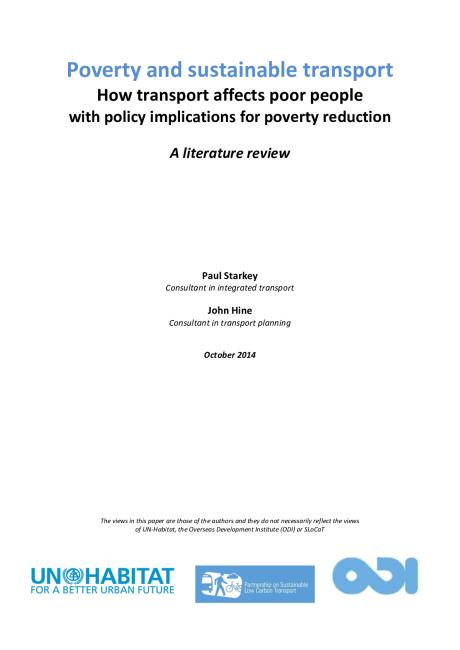Although this paper does not consider the issues for women and PWD separately, it considers rural roads in respect to poverty, access and isolation, agricultural production, access to health care and education, non-equal benefits, long-term benefits and negative consequences, policy implications, measurability of pro-poor benefits and investment priorities and involving rural people in road construction and maintenance. As rural WAGWD are often poor, with many living in rural areas, these issues are critical to addressing their needs. The paper also notes WAGWD prefer to use public transport at off-peak times when they are safer however there are fewer services available.
Sector
Infrastructure
Year
2014
Type
Report
